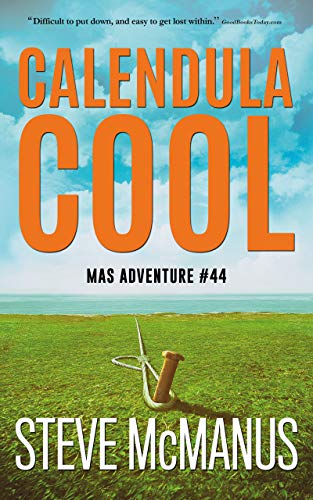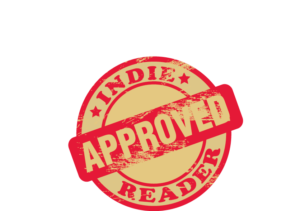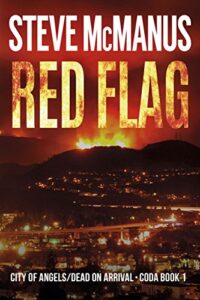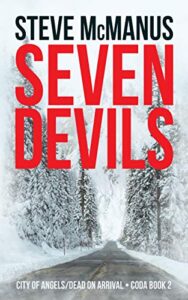Calendula Cool received a 4+ star review, making it an IndieReader Approved title.
Following find an interview with author Steve McManus.
What is the name of the book and when was it published?
Calendula Cool was published in February 2020.
What’s the book’s first line?
In the diminishing twilight of a warm summer evening, a girl ran flat-out through the woods.
What’s the book about? Give us the “pitch”.
During the last days of fifth grade, a group of friends investigate a rumor of a girl who vanished, and find more than they bargained for.
What inspired you to write the book? A particular person? An event?
My inspiration was my ten year-old daughter. She’d watched me write two books already, Red Flag and Seven Devils, from my CODA series of suspense thrillers. Finally, she guilted me into promising to write a book she could read. So I did. Her only complaint is that Calendula Cool is too short, which I can live with. Now she’s guilting me for the sequel! Who needs an editor when you have a despot for a child?
What’s the main reason someone should really read this book?
With its early 90s setting, Calendula Cool evokes the feel-good nostalgia of paperback young adult and middle grade classic series like The Babysitters Club. Cozy and laidback, the seaside city of Calendula (pronounced Ka-len-doo-la) comes alive through the novel—from its hazy coastal sunsets, deep forest dotted with the rusting frames of old cars, to its stately mansion homes and touristy boardwalks. While Calendula Cool teaches lessons about friendship, making difficult choices, empathy, and looking beyond first impressions, it doesn’t shy away from more nuanced topics. Issues of parental neglect, wealth inequality, and adult callousness toward children are touched upon with an approach that’s age-appropriate. And it’s fun.
What’s the most distinctive thing about the main character? Who—real or fictional—would you say the character reminds you of?
At times Danny Kasho reminds me of Elliott from E.T. the Extra-Terrestrial. His distinctive features are his tenacity, loyalty, and creativity, but the same could be said of all his friends. Their rambunctious personalities mix well together, like the kids from The Sandlot. Each of them has their own strengths, faults, and sense of humor, which brings a lot of heart to the story. More importantly, the novel never undermines them; they’re kids with typical problems kids have to deal with, but they’re also resourceful, intelligent, and highly observant.
When did you first decide to become an author?
I’ve been writing since I was ten, starting with short, childish imitations of The Cannonball Run and Raiders of the Lost Ark. I loved watching the words of the story appear on the paper before my eyes. I’ve long graduated from my mom’s IBM Selectric typewriter to an iMac, and I love watching the words of a story appear before my eyes even more.
Is this the first book you’ve written?
Calendula Cool is my third book. My first two novels, Red Flag and Seven Devils, are in my CODA series of suspense thrillers. Calendula Cool is my first book for middle grade/tween/young adult/call them what you will, and features my main character from the CODA series, Danny Kasho, as his ten year-old self in his hometown of Calendula, California. I enjoyed it enough that I’m working on the sequel, and not just to satisfy my tyrannical daughter.
What do you do for work when you’re not writing?
I work at NBC Universal. Being inside a media company informed my main character of Los Angeles crime reporter Danny Kasho.
How much time do you generally spend on your writing?
Before the quarantine, it varied from minutes to a couple of hours. Now I’m being immensely productive, so there is always lemonade to be made from lemons.
What’s the best and the hardest part of being an indie?
The best part is also the hardest, seeing the thing through from manuscript to draft to finished product, with artwork and everything, and that new book smell. From the typesetting to the title, creation and manufacturing, promotion and distribution—everything is up to you. You learn a lot as you go, and some lessons are more expensive than others, but the process gets better from title to title.
Would you go traditional of a publisher came calling? If so, why?
I would go to a traditional publisher for their experience and ideas. Their broad platform can raise awareness of my books, and target their built-in consumer base. While it doesn’t at all alleviate the responsibilities of the author, having that machine behind you can help bring your work to more people, which is the goal.



